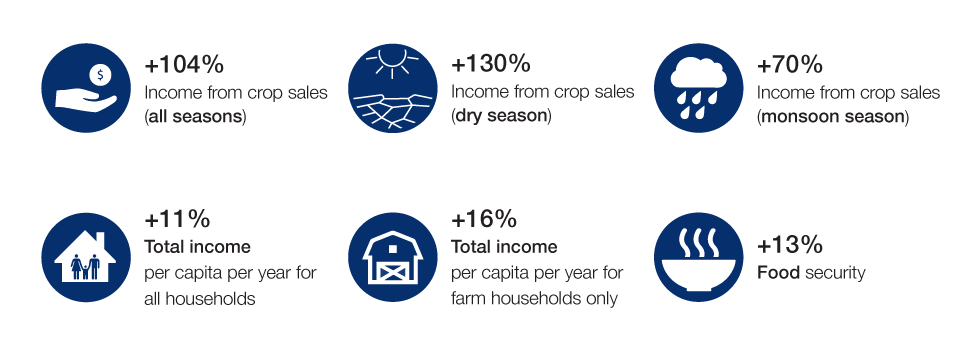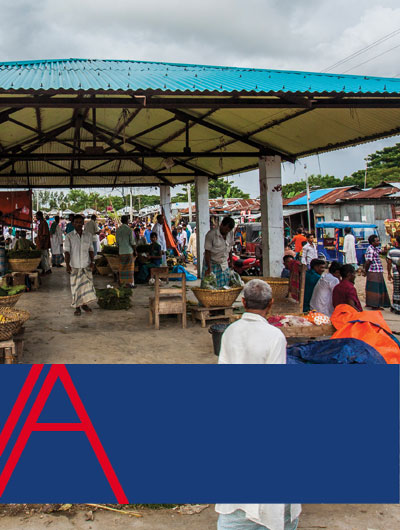Impact assessment: Coastal Climate Resilient Infrastructure Project (CCRIP)
Impact assessment: Coastal Climate Resilient Infrastructure Project (CCRIP)
Farmers in southwestern Bangladesh, an area prone to natural disasters, are sometimes unable to reach community markets in the monsoon season. The Coastal Climate Resilient Infrastructure Project was implemented in 12 coastal districts to improve farmers' access to markets by making coastal roads and market infrastructure more resilient to the tidal surges and flooding caused by cyclones.
The project established and trained labour contracting societies (LCS) of about 5000 members to complete the construction of 355 kilometres of raised roads, using materials which can withstand floods. The roads were lined with vetiver grass to prevent erosion. The LCS members improved their community markets by constructing raised platforms and toilet blocks, and drainage trenches to prevent flooding. Market management committees were trained in how to maintain the new infrastructure efficiently.
The project provided local women with opportunities to earn higher incomes, including through training in income-generating activities. LCS members were mainly destitute women, and sections of the community markets were reserved for women, where they could rent shops at affordable rates. An ex-post impact assessment of the project was conducted using data from 2,670 households, half of which were non-participating households selected using a statistical matching method to provide a robust comparison.
Key impact estimates
An impact estimate is calculated as the difference in mean outcomes between the treatment group (project participants) and the comparison group (non-participants).
More reliable access to markets throughout the dry and monsoon seasons has enabled local farmers to even out their income and food consumption throughout the year. Key impact estimates include:

Main lessons
The following lessons for future project design and policy formulation emerged from this impact assessment:
- Infrastructure projects that focus on improving the resilience of local markets and roads to extreme climate events can be especially beneficial to the most remote, poorest farmers who typically face the most difficulty in accessing local markets.
- Complementing market infrastructure improvement with training for market managers, as the project did, can improve the operation and maintenance of markets.
- Future projects should give farmers access to affordable farm inputs, improved technologies and training to ensure that farm productivity increases proportionately with improved access to output markets.
- Future projects should adopt a more holistic approach to farmers' different livelihood sources in order to generate higher impact on their incomes. The benefits of improved market access should be extended to livelihood sources that are more suited to local contexts, in this case livestock rearing, fish production and off-farm work by improving access to credit and tailoring training to the needs of the local labour market.
- Barriers to women's mobility and participation in the economy should be explicitly addressed to ensure more sustainable empowerment, adapting approaches to the different cultural norms in their households. Interventions that can contribute to this are: training in soft skills that facilitate economic participation (wage or self-employment); and establishing safe spaces where they can discuss social issues away from the pressures of family and society. In order to ensure sustainability of women's empowerment, family members and the wider society should also be included in these interventions.
